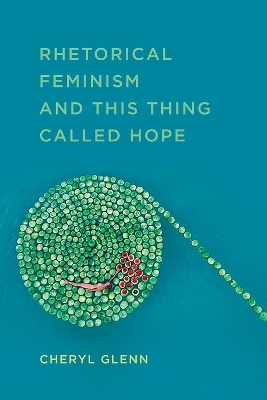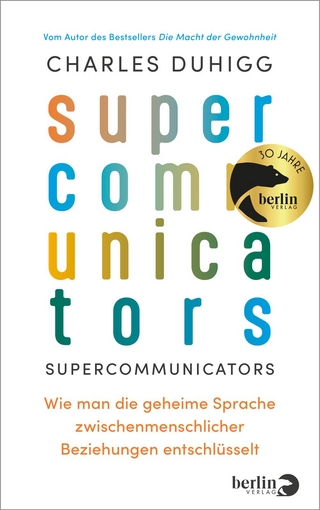
Rhetorical Feminism and This Thing Called Hope
Seiten
2018
Southern Illinois University Press (Verlag)
978-0-8093-3694-4 (ISBN)
Southern Illinois University Press (Verlag)
978-0-8093-3694-4 (ISBN)
Rhetoric and feminism have yet to coalesce into a singular recognizable field. In this book, author Cheryl Glenn advances the feminist rhetorical project by introducing a new theory of rhetorical feminism. Rhetorical Feminism and This Thing Called Hope equips the field with tools for a more expansive and productive dialogue.
Rhetoric and feminism have yet to coalesce into a singular recognizable field. In this book, author Cheryl Glenn advances the feminist rhetorical project by introducing a new theory of rhetorical feminism. Clarifying how feminist rhetorical practices have given rise to this innovative approach, Rhetorical Feminism and This Thing Called Hope equips the field with tools for a more expansive and productive dialogue.
Glenn’s rhetorical feminism offers an alternative to hegemonic rhetorical histories, theories, and practices articulated in Western culture. This alternative theory engages, addresses, and supports feminist rhetorical practices that include openness, authentic dialogue and deliberation, interrogation of the status quo, collaboration, respect, and progress. Rhetorical feminists establish greater representation and inclusivity of everyday rhetors, disidentification with traditional rhetorical practices, and greater appreciation for alternative means of delivery, including silence and listening. These tenets are supported by a cogent reconceptualization of the traditional rhetorical appeals, situating logos alongside dialogue and understanding, ethos alongside experience, and pathos alongside valued emotion.
Threaded throughout the book are discussions of the key features of rhetorical feminism that can be used to negotiate cross-boundary mis/understandings, inform rhetorical theories, advance feminist rhetorical research methods and methodologies, and energize feminist practices within the university. Glenn discusses the power of rhetorical feminism when applied in classrooms, the specific ways it inspires and sustains mentoring, and the ways it supports administrators, especially directors of writing programs. Thus, the innovative theory of rhetorical feminism—a theory rich with tactics and potentially broad applications—opens up a new field of research, theory, and practice at the intersection of rhetoric and feminism.
Rhetoric and feminism have yet to coalesce into a singular recognizable field. In this book, author Cheryl Glenn advances the feminist rhetorical project by introducing a new theory of rhetorical feminism. Clarifying how feminist rhetorical practices have given rise to this innovative approach, Rhetorical Feminism and This Thing Called Hope equips the field with tools for a more expansive and productive dialogue.
Glenn’s rhetorical feminism offers an alternative to hegemonic rhetorical histories, theories, and practices articulated in Western culture. This alternative theory engages, addresses, and supports feminist rhetorical practices that include openness, authentic dialogue and deliberation, interrogation of the status quo, collaboration, respect, and progress. Rhetorical feminists establish greater representation and inclusivity of everyday rhetors, disidentification with traditional rhetorical practices, and greater appreciation for alternative means of delivery, including silence and listening. These tenets are supported by a cogent reconceptualization of the traditional rhetorical appeals, situating logos alongside dialogue and understanding, ethos alongside experience, and pathos alongside valued emotion.
Threaded throughout the book are discussions of the key features of rhetorical feminism that can be used to negotiate cross-boundary mis/understandings, inform rhetorical theories, advance feminist rhetorical research methods and methodologies, and energize feminist practices within the university. Glenn discusses the power of rhetorical feminism when applied in classrooms, the specific ways it inspires and sustains mentoring, and the ways it supports administrators, especially directors of writing programs. Thus, the innovative theory of rhetorical feminism—a theory rich with tactics and potentially broad applications—opens up a new field of research, theory, and practice at the intersection of rhetoric and feminism.
Cheryl Glenn is Distinguished Professor of English at Pennsylvania State University and Director of the Program in Writing and Rhetoric. Her many scholarly publications include Rhetorical Education in America; Unspoken: A Rhetoric of Silence (SIU Press); Silence and Listening as Rhetorical Arts (SIU Press); and Landmark Essays in Rhetoric and Feminism.
| Erscheinungsdatum | 18.09.2018 |
|---|---|
| Verlagsort | Carbondale |
| Sprache | englisch |
| Maße | 152 x 229 mm |
| Gewicht | 482 g |
| Themenwelt | Sachbuch/Ratgeber ► Beruf / Finanzen / Recht / Wirtschaft ► Briefe / Präsentation / Rhetorik |
| Geisteswissenschaften ► Sprach- / Literaturwissenschaft ► Sprachwissenschaft | |
| Sozialwissenschaften ► Politik / Verwaltung ► Politische Theorie | |
| Sozialwissenschaften ► Soziologie ► Gender Studies | |
| ISBN-10 | 0-8093-3694-4 / 0809336944 |
| ISBN-13 | 978-0-8093-3694-4 / 9780809336944 |
| Zustand | Neuware |
| Haben Sie eine Frage zum Produkt? |
Mehr entdecken
aus dem Bereich
aus dem Bereich
der unverzichtbare LEGO® SERIOUS PLAY® Praxis-Guide für Workshops, …
Buch | Hardcover (2023)
Hanser (Verlag)
39,99 €
Wie man die geheime Sprache zwischenmenschlicher Beziehungen …
Buch | Hardcover (2024)
Berlin Verlag
26,00 €
Die Rede des Häuptling Seattle an den Präsidenten der Vereinigten …
Buch | Hardcover (2024)
Patmos Verlag
9,90 €


